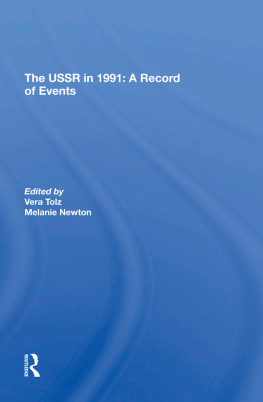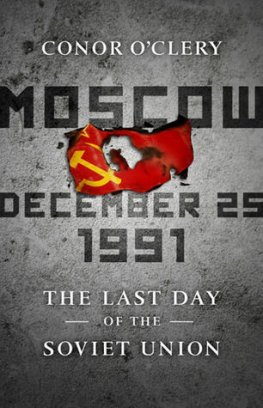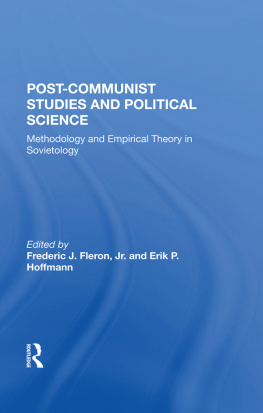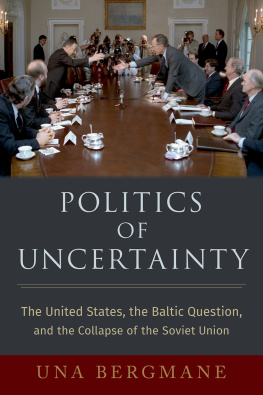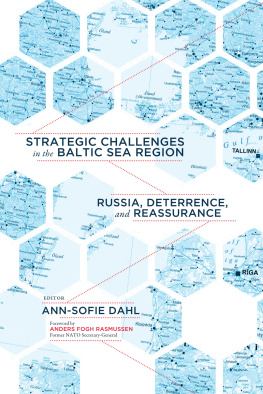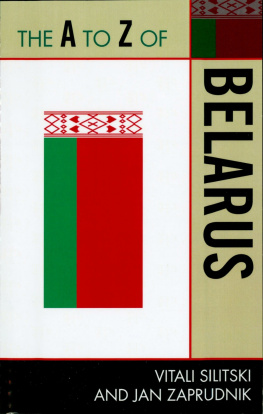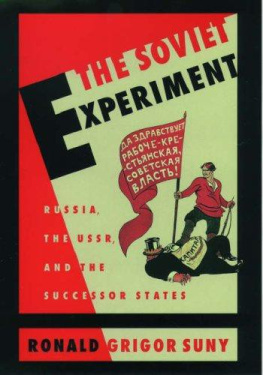First published 1993 by Westview Press
Published 2019 by Routledge
52 Vanderbilt Avenue, New York, NY 10017
2 Park Square, Milton Park, Abingdon, Oxon OX14 4RN
Routledge is an imprint of the Taylor & Francis Group, an informa business
Copyright 1993 by Radio Free Europe/Radio Liberty
All rights reserved. No part of this book may be reprinted or reproduced or utilised in any form or by any electronic, mechanical, or other means, now known or hereafter invented, including photocopying and recording, or in any information storage or retrieval system, without permission in writing from the publishers.
Notice:
Product or corporate names may be trademarks or registered trademarks, and are used only for identification and explanation without intent to infringe.
Library of Congress Cataloging-in-Publication Data
Tolz, Vera.
The USSR in 1991: a record of events / edited by Vera Tolz and Melanie Newton
p. cm.
ISBN 0-8133-8717-5
1. Soviet UnionHistory1985-1991Chronology. I. Newton,
Melanie. II. Title.
DK286.T654 1993
947.085'4'0202dc20 92-42105
CIP
ISBN 13: 978-0-367-29704-6 (hbk)
On that dramatic day, August 19, 1991, Elena Bonner addressed the citizens of Moscow: "I call on you to defend the freedom we have today. Only in this way can we create a life that is different from the one we and our parents have lived for seventy-three years." Not all who heard such appeals to oppose the attempted coup were prepared to man the barricades, but there were more than enough people all over the USSR for whom a return to the old ways was unthinkable. They rejected the enforced passivity that had allowed an unpopular regime to rule for so long over a greater expanse of territory and greater number of peoples than any tsar. The struggle against authoritarian methods no longer seemed hopeless; at last individual liberty and national sovereignty were more than words.
As the USSR disintegrated, new leaders came into the limelight, and others, already widely known, took on new roles. The rivalry between Mikhail Gorbachev and Boris El'tsin frequently occupied the center of the stage. No doubt Gorbachev believes he was right to oppose the aspirations to independence of the republics, on the grounds that only a strong political union and powerful center could prevent ethnic conflict, territorial disputes, and economic collapse. But the introduction of even limited democracy showed how widespread the demand for national sovereignty was. The year began with Moscow's crackdown in the Baltic republics. On January 13 fourteen people were killed and hundreds injured when Soviet tanks opened fire on a crowd protecting the Vilnius television tower. More blood was shed in Riga on January 20 when Soviet special forces stormed the building of the Latvian Ministry of Internal Affairs. Moscow kept up the pressure in the following months by staging repeated attacks on Baltic customs posts. But this only made the Baits more determined, as their resistance to the August coup testified.
Elsewhere, too, the gulf between the center and the republics was already becoming unbridgeable even before the coup. Only nine republics participated in the March 17 referendum on the preservation of the USSR, and at subsequent negotiations on the Union treaty these nine forced Gorbachev finally to recognize their declarations of sovereignty. Georgia declared its independence on April 9, having rejected, along with Armenia and Moldavia, any new Union state.
That Moscow had suppressed ethnic disputes, not solved them, was underlined once more in 1991. The conflict between Azerbaijan and Armenia over Nagorno-Karabakh flared up again with renewed intensity in April and May, while sporadic clashes between Georgian special units and local forces in South Ossetia left hundreds dead or injured and forced thousands more to flee from their homes. In Moldavia, which declared its independence on August 27, the year ended with fighting between Moldavian units and supporters of the "Dniester SSR."
Amid the general confusion and political uncertainty, the USSR's economic decline accelerated. Industrial and agricultural output continued to fall, and by the end of the year the states of the former Union were facing a hard-currency and budgetary crisis. The freeing of some retail prices in April prompted workers in normally conservative Belorussia to stage a protest strike, while in Siberia, Ukraine, and Kazakhstan miners took industrial action to press political as well as economic demands.
The referendum held in Ukraine on December 1 produced a 90-percent majority in favor of independence and put the final seal on the USSR's fate. Leonid Kravchuk, who had demonstrated his political acumen by distancing himself from his Communist Party background to promote the cause of Ukrainian sovereignty, was elected president of Ukraine that same day.
Among other national leaders to emerge from the grey conformity of the Party hierarchy, Nursultan Nazarbaev of Kazakhstan was particularly successful in making his mark as the Central Asian republics strove to forge direct economic links with the outside world.
Gorbachev announced his resignation on December 25, a passing more mourned in the West than in his own country. If indeed he was the best leader the Soviet Union had ever had, his superiority surely lay less in his ability to govern than in his reluctance to use sufficient brutality to prevent the collapse of the system over which he presided. Within two days El'tsin had moved into Gorbachev's Kremlin office, demonstrating his determination, albeit in a somewhat crude manner, to push Russia into a new, non-Communist era. The leaders of the Commonwealth of Independent States, which replaced the USSR, could not be expected to bring their much-suffering populations an immediate transition to democracy, still less instant peace and prosperity. But the end of the USSR did bring a demonstrable freedom, and with it the opportunity to turn hopes for a better future into reality.
This is the third, and last, of the annual Records of Events in the USSR expertly produced by Vera Tolz and Melanie Newton with the assistance of their colleagues in the RFE/RL Research Institute. It was not originally seen as a limited series; but as it turns out, their three volumes provide an outstanding chronicle of events so significant for the history of our century as to merit the efforts of many a future Gibbon. These annual records are not, however, merely the raw material for other books. They provide carefully selected but very comprehensive facts, and they succeed admirably in presenting an objective and balanced day-by-day account of three sensational years. Those who have used the first two volumes will find this one equally indispensable for checking who was who and what happened when, in the year that the USSR ended.
IAIN ELLIOT

